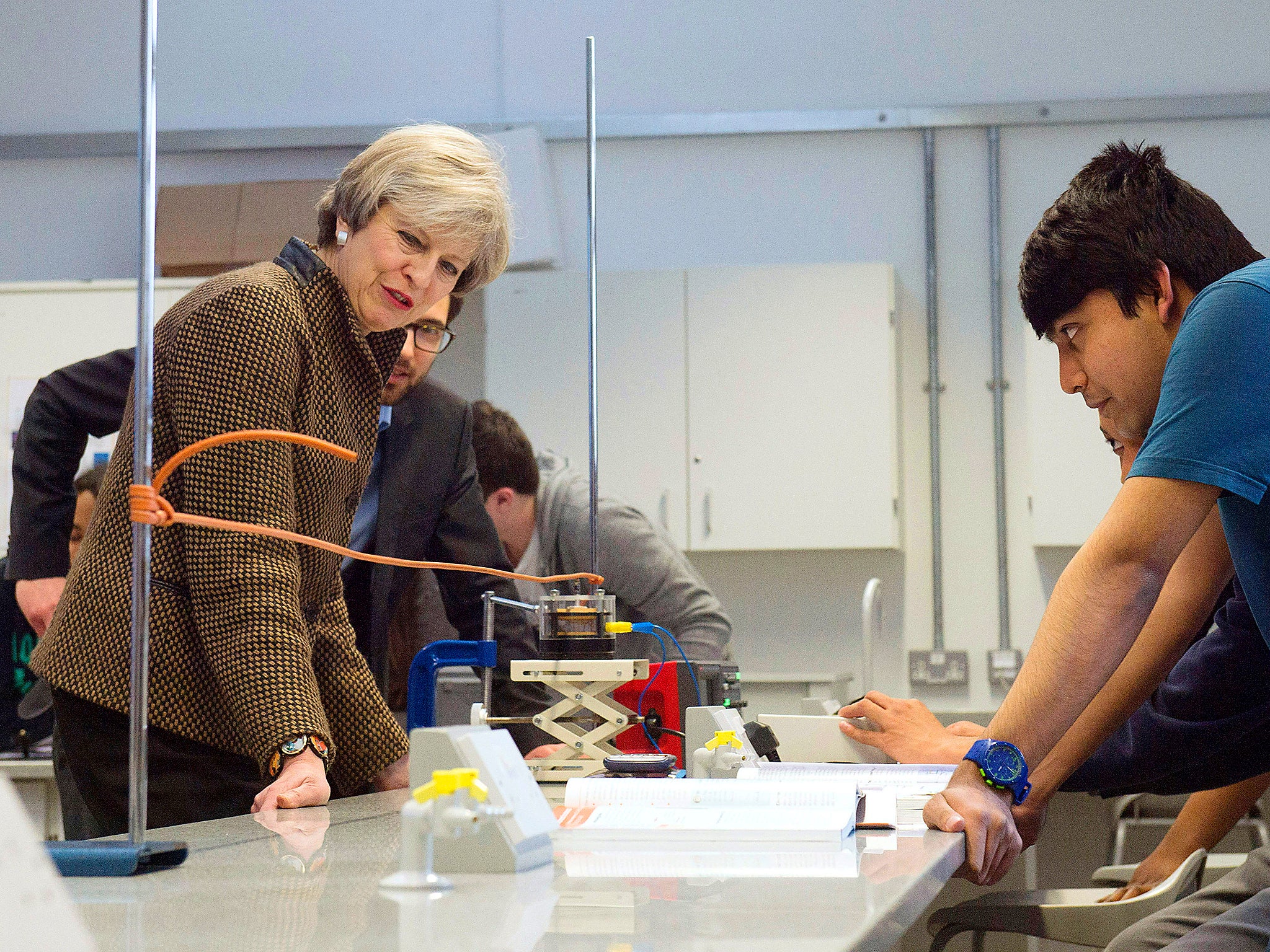Theresa May defies ‘free schools’ programme criticism by vowing to build 140 more
Tomorrow’s Budget will announce £320m for more free schools – despite a scathing report by Parliament’s spending watchdog

Your support helps us to tell the story
From reproductive rights to climate change to Big Tech, The Independent is on the ground when the story is developing. Whether it's investigating the financials of Elon Musk's pro-Trump PAC or producing our latest documentary, 'The A Word', which shines a light on the American women fighting for reproductive rights, we know how important it is to parse out the facts from the messaging.
At such a critical moment in US history, we need reporters on the ground. Your donation allows us to keep sending journalists to speak to both sides of the story.
The Independent is trusted by Americans across the entire political spectrum. And unlike many other quality news outlets, we choose not to lock Americans out of our reporting and analysis with paywalls. We believe quality journalism should be available to everyone, paid for by those who can afford it.
Your support makes all the difference.Theresa May will today defy fierce criticism of huge waste in the “free schools” programme by vowing to build 140 more of the schools.
The Budget will plough £320m into creating more than 70,000 new places at the schools – which are independent of local authorities – although only 30 will open by 2020.
“We are confirming new investment to give parents a greater choice of a good school place for their child,” the Prime Minister said.
Ms May will also signal her determination to press ahead with opening new grammar schools by promising free travel to selective schools for children from the poorest homes.
At present free transport is only offered to families receiving free school meals and maximum working tax credit who attend non-selective schools, at an annual cost of around £40m.
Last month, a scathing report by Parliament’s spending watchdog found that millions of pounds of taxpayers’ money is being wasted building state-of-the-art free schools that stand empty.
At the same time, deteriorating and potentially unsafe buildings presented a “looming crisis” for local authorities, the National Audit Office (NAO) warned.
The cost of the free schools programme ballooned in the last Parliament from a forecast £900m to £1.8bn, mainly because of the huge cost of buying land for them.
Up to 60 per cent of existing school buildings are in urgent need of repair, the NAO found, with many suffering major defects with electrics and external walls.
It warned that half-empty free schools are creating spare capacity in some areas which will have “serious financial implications” for local council schools.
However, the Budget will confirm the Government is pressing ahead with opening a total of 500 new free schools by September 2020, with 30 more on the way – and a further 110 in the next Parliament.
The latest £320m cash injection for the programme is more than £216m that will be set aside to rebuild and refurbish existing schools tomorrow.
No details were provided for how that money will be spent, but ministers have previously said the “vast majority” of a planned 260 schools will be revamped by the end of this year.
The third strand of today’s education announcement follows Ms May’s controversial plans – opposed by a significant number of her own MPs – to set up the first new grammar schools for a generation.
They are not expected to open until after the 2020 general election because of the need for lengthy consultations and legal changes.
But before then, additional places are expected to be created by groups of academies within existing grammars or by building remote “annexes”.
Now the ‘extended rights’ entitlement to ensure the cost of transport does not prevent poorer pupils attending high-performing schools will be extended to the selective sector.
Ms May added: “For too many children, a good school place remains out of reach with their options determined by where they live or how much money their parents have.
“Over the last six years, we have overseen a revolution in our schools system and we have raised standards and opportunity, but there is much more to do.”
The extension comes as state schools wrestle with a real-terms spending cut of 6.5 per cent over the course of this Parliament, according to the Institute for Fiscal Studies.
Join our commenting forum
Join thought-provoking conversations, follow other Independent readers and see their replies
Comments